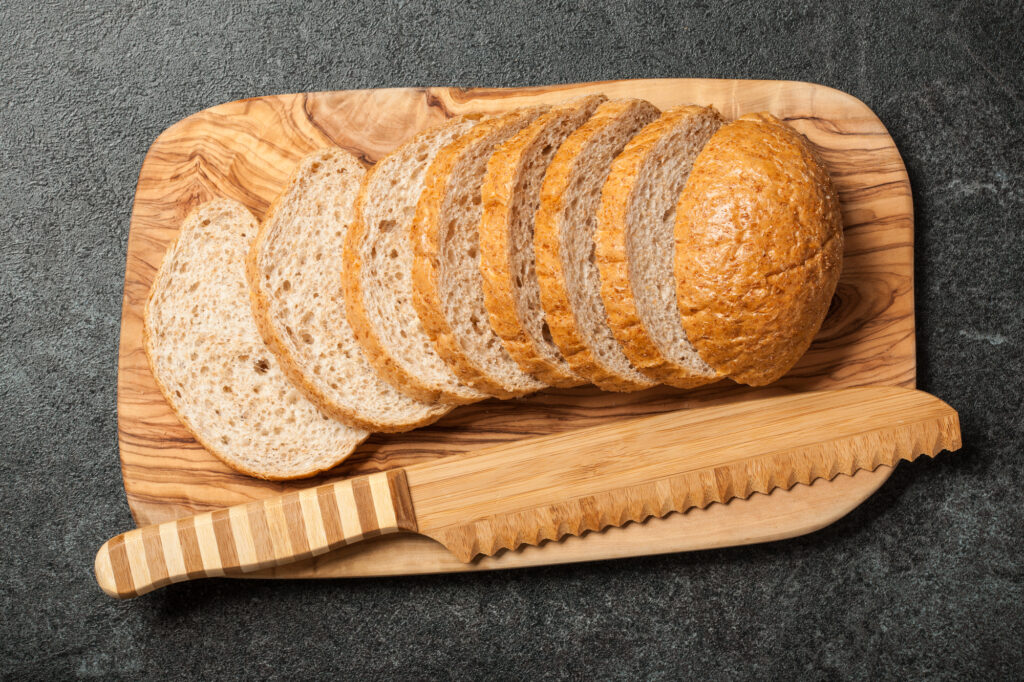Wooden knives have been around for centuries and are still used in many kitchens today. Despite the common misconception that wooden knives are not as effective as their metal counterparts, they actually have a number of unique benefits that make them a great choice for many types of food preparation.
Here Is Why Wooden Knives Are Kitchen Friendly
Wooden knives are not as well known as steel, but have some really great benefits which include:
Food Safe
Sharper Than Steel Knives
Can Cut Soft Meat
Not Toxic
Eco Friendly
In this blog post, we will explore the reasons why wooden knives work so well in a kitchen, and how they can be used to achieve optimal results in your cooking. Whether you are a professional chef or a home cook, you will find that wooden knives can be a valuable addition to your kitchen tools.

Ways Wooden Knives Are Kitchen Friendly
Food Safe
Wooden knives are considered food safe for several reasons:
Bacteria resistance: Wood is naturally resistant to bacteria and fungi, which means that wooden knives are less likely to harbor harmful microorganisms.
No metallic flavors: Unlike steel knives, wooden knives do not transfer any metallic flavors to food. This makes them ideal for preparing food that is sensitive to metallic tastes.
No chemical reactions: Wood does not react with acidic foods, which means there is no risk of chemical reactions that could affect the taste or safety of the food.
Easy to clean: Wooden knives are easy to clean and sanitize, as they can be washed in hot, soapy water, and then rinsed and dried thoroughly.
Safe to use: Wooden knives are less likely to cause cuts or injuries than steel knives. They are also less likely to slip when wet, which makes them a safer choice for home cooks.
It’s worth noting that wooden knives should be cleaned, dried and oiled regularly to prevent cracking, warping and splitting, which could allow bacteria to grow. Also, wooden knives shouldn’t be put in dishwashers or soaked in water for long periods of time as this can damage the wood.
Wooden Knives Are Sharper Than Steel Knives
Wooden knives are sharper than steel knives for several reasons:
Edge retention: Wooden knives maintain their edge for a longer period of time than steel knives. The wood fibers are softer than steel, which means they don’t dull as quickly.
Sharpening: Wooden knives are easier to sharpen than steel knives. The soft wood fibers can be reshaped with a honing stone or a wood-specific sharpening tool.
Flexibility: Wooden knives are more flexible than steel knives, which allows them to bend slightly when cutting through food. This flexibility helps to prevent the knife from dulling as quickly.
No rust: Wooden knives do not rust, unlike steel knives which can corrode over time if not taken care of.
Food safety: Wooden knives are less likely to transfer metallic flavors or harmful bacteria to food.
It’s worth noting that wooden knives are not as durable as steel knives and can break if too much force is applied or if dropped. Also, wooden knives are not as suitable for cutting hard and frozen foods. But for chopping, slicing and dicing of fresh produce, wooden knives can be sharper than steel knives.
Can Cut Some Meats
Yes, wooden knives can cut meat. However, the type of meat and how it is prepared can affect the quality of the cut and how easy it is to slice through. Wooden knives are more flexible than steel knives, which allows them to bend slightly when cutting through food.
This flexibility can make it easier to slice through softer meats, especially if the meat is tough or fibrous. However, wooden knives are not as durable as steel knives and can break if too much force is applied or if dropped.
Also, wooden knives are not as suitable for cutting hard and frozen meats, and are more appropriate for slicing softer meats. It’s important to note that wooden knives need to be sharpened and maintained regularly to ensure they are in good condition to cut meat.
Non Toxic
Wooden knives are considered non-toxic for several reasons:
Natural Material: Wood is a natural material, which means it does not contain any harmful chemicals or toxins that could leach into food.
Food-grade safe: Wooden knives are made from food-grade safe wood and are free from any harmful chemicals, pesticides or heavy metals that could be harmful to consume.
No chemical reactions: Wood does not react with acidic foods, which means there is no risk of chemical reactions that could affect the taste or safety of the food.
Non-reactive: Unlike steel knives, wooden knives do not react to acidic foods, salt or other ingredients that can cause corrosion or rust.
Safe to use: Wooden knives are less likely to cause cuts or injuries than steel knives. They are also less likely to slip when wet, which makes them a safer choice for home cooks.
It’s worth noting that wooden knives should be cleaned, dried and oiled regularly to prevent cracking, warping and splitting, which could allow bacteria to grow. Also, wooden knives shouldn’t be put in dishwashers or soaked in water for long periods of time as this can damage the wood.
Eco Friendly
Wooden knives are considered eco-friendly for several reasons:
Sustainable resource: Wood is a renewable and sustainable resource, unlike many other materials used to make knives such as steel or plastic.
Biodegradable: Wooden knives are biodegradable, which means they can decompose naturally in the environment without causing any harm.
Low energy consumption: The production of wooden knives requires less energy compared to the production of steel knives, making them more energy efficient.
Low carbon footprint: The production of wooden knives generates less carbon emissions compared to the production of steel knives, making them a more environmentally friendly option.
Recyclable: Wood is a recyclable material, meaning that wooden knives can be repurposed or recycled once they are no longer useful.
Long-lasting: Wooden knives can last for a long time with proper care and maintenance, reducing the need to constantly replace them, which helps to reduce waste.
It’s worth noting that wooden knives should be sourced from responsibly managed forests and should be taken care of to ensure their longevity. Also, the end-of-life of the wooden knives should be properly managed to ensure they decompose naturally and don’t contribute to pollution.
What Are Wooden Knives Used For In The Kitchen?
Wooden knives have been used in kitchens for centuries, and they can be used for a variety of tasks. Some common uses for wooden knives in the kitchen include:
Chopping and slicing fruits and vegetables: Wooden knives are sharp and flexible, which makes them well-suited for chopping and slicing fresh produce. They can also be used to mince herbs and garlic.
Meat preparation: Wooden knives can be used to slice and chop softer meats, but not for cutting through bones or frozen meats.
Bread slicing: Wooden knives are gentle on bread, making them ideal for slicing through crusty bread without squashing the interior.
Spreading and Smearing: Wooden knives can be used to spread butter, jams, and other condiments on bread or crackers.
Decorating and garnishing: Wooden knives can be used to create decorative designs on cakes and other desserts, and to garnish plates with fruits and vegetables.
Carving: wooden knives can be used to carve soft and semi-soft cheeses and fruits.
It’s worth noting that wooden knives are not as durable as steel knives and can break if too much force is applied or if dropped. Also, wooden knives are not as suitable for cutting hard and frozen foods. But for chopping, slicing, spreading and cutting soft food, wooden knives can be a great option.

